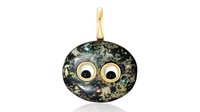Chris Blakeslee has experience at Athleta and Alo Yoga. Kendra Scott will remain on board as executive chair and chief visionary officer.
About Retail: Inventory sharing, San Francisco style
The city that’s home to sharing-based services Airbnb and Uber also has 66 Mint, a company with a 100-year history that wants to give retailers worldwide virtual access to its inventory.
San Francisco--San Francisco. The city that was the epicenter of the counterculture movement of the 1960s, home to Haight-Ashbury, hippies and hallucinogens.
The city that is today at the center of another movement, the sharing culture, home to Airbnb, Uber and, now, a jewelry company with a 100-year history that wants to share its inventory with retailers worldwide.
Marcus Chait is the managing partner of San Francisco Provident, a company that makes loans against high-value assets and buys and sells jewelry from the public, as well as appointment-only boutique and e-commerce site 66 Mint and his latest venture, MemoGems, an e-commerce platform that gives retailers everywhere access to their inventory.
The company’s philosophy in developing MemoGems was this: People are willing to buy jewelry online, but are more apt to buy it from a retailer they know and trust.
If, let’s say, a client in Tennessee came across a piece they liked on the 66 Mint website they might not hit the buy button, simply because they don’t know anything about this San Francisco-based company. But if that same piece were on a retailer’s website in Tennessee, its chances of getting sold increase.
“We’re willing to put our ego out of the way,” Chait said. “Let’s empower these other dealers around the world who need inventory.”
The story of how 66 Mint, and thus MemoGems, came to be is a story in itself. In 1965, a man named Frank Rusalem sold San Francisco Provident--which was founded in 1912 and purchased by him in 1952--to another San Francisco businessman, Robert Chait.
When Rusalem died, Robert Chait attended his funeral along with his son Joseph. There, Joseph Chait met Rusalem’s granddaughter Deborah, and the two ended up getting married and, eventually, became Marcus Chait’s parents.
“It’s crossed the family lines and generations since the ‘50s,” Chait said, adding that they have had both sides of the family working there at various points throughout the company’s history.
While the wholesale side of the business dates back to 1912, it was only about three years ago that the family opted to open a brick-and-mortar store. They set up shop at 66 Mint St. and named their store after their address, not a bad idea in these days of Google searches. (The store comes up second when Googling “66 Mint Street San Francisco.”)
The site worked, and 66 Mint found itself selling significant pieces to people all over the world, people they wouldn’t have been able to reach otherwise.
The owners of 66 Mint Fine Estate Jewelry wanted to continue to build on their online success, so they came up with MemoGems, a platform that allows them to virtually share their inventory with retailers everywhere while also assisting those who lack the resources, time and/or know-how to build and maintain an e-commerce site.
Launched in October, the MemoGems platform is a fully functioning e-commerce site branded with the retailer’s name, logo, contact information and “About Us” information that is, in Chait’s words, “paint-by-numbers” simple to operate.
Retailers log in to the site via a web portal to see a list of the available inventory. It shows them what each piece costs them to buy from 66 Mint and what 66 Mint will list it for on their public-facing website. There’s also an empty box where they fill in what they would like to list the piece for on their website.
Chait said they are welcome to match, oversell or undersell 66 Mint, noting that the average profit margin when matching the 66 Mint price is 30 percent. “Our thought process is: they know their clients better than we know their clients, and they know what price (they’re willing to pay.)”
He said they once had a diamond ring on the 66 Mint site listed for $16,000 that a dealer three blocks away sold for $23,000 because they have more site traffic and because the client was more comfortable buying from them.
Once the retailer selects and prices the pieces they would like to sell, they hit a button to upload them to the site. When a piece gets sold, the retailer wires 66 Mint’s cut to San Francisco and emails them the shipping waybill. (The retailer is responsible for arranging and paying for shipping, and also sets their own rules for returns and exchanges.) Then, 66 Mint ships the piece either to the retailer or directly to their client.
Chait said MemoGems, which launched in October, currently has about 15 users, and their goal is to reach 40 by the end of the year.
The platform gives retailers access to about 550 pieces of antique, estate, closeout and custom pieces 66 Mint made by re-purposing jewelry bought off the street.
Retailers are free to post as many, or as few, pieces as they would like, and the inventory is synched across all sites. If, for example, a retailer in Texas sells a brooch, that piece gets marked as sold in the system within milliseconds so a jeweler in Pennsylvania cannot promise that same piece to a customer.
Chait said it costs $900 to build each site so they ask for that amount as a deposit up front, which the retailer gets back as soon as they reach $5,000 in sales. There is also a $200 per year charge for MemoGems that covers the bandwidth, maintenance and hosting of the site, which 66 Mint handles.
“There is so much tech innovation going on, quite literally all around us, that we figured we better jump on the wave and take advantage of the new business opportunities that this new technology has made available to us,” Chait said.
And, so far, it’s working. “People are selling the heck out of this stuff.”
The Latest

The credit card companies’ surveys examined where consumers shopped, what they bought, and what they valued this holiday season.

Kimberly Miller has been promoted to the role.

How Jewelers of America’s 20 Under 40 are leading to ensure a brighter future for the jewelry industry.
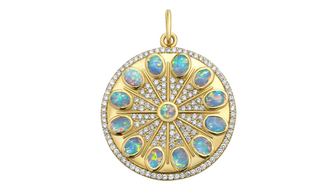
The “Serenity” charm set with 13 opals is a modern amulet offering protection, guidance, and intention, the brand said.


“Bridgerton” actresses Hannah Dodd and Claudia Jessie star in the brand’s “Rules to Love By” campaign.
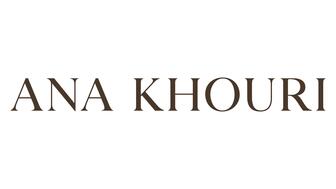
Founded by jeweler and sculptor Ana Khouri, the brand is “expanding the boundaries of what high jewelry can be.”
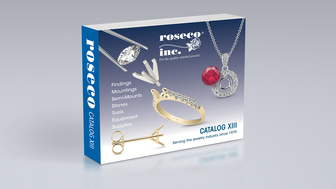
Roseco’s 704-page catalog showcases new lab-grown diamonds, findings, tools & more—available in print or interactive digital editions.
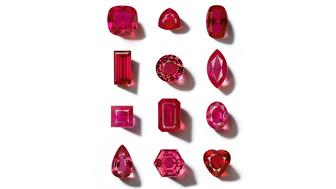
The jewelry manufacturer and supplier is going with a fiery shade it says symbolizes power and transformation.

The singer-songwriter will make her debut as the French luxury brand’s new ambassador in a campaign for its “Coco Crush” jewelry line.

The nonprofit’s new president and CEO, Annie Doresca, also began her role this month.

As the shopping mall model evolves and online retail grows, Smith shares his predictions for the future of physical stores.
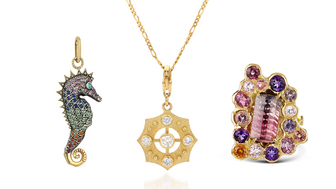
The trade show is slated for Jan. 31-Feb. 2 at The Lighthouse in New York City's Chelsea neighborhood.
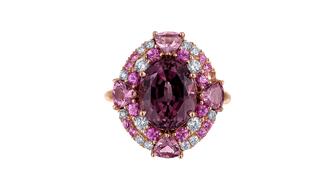
January’s birthstone comes in a rainbow of colors, from the traditional red to orange, purple, and green.

The annual report highlights how it supported communities in areas where natural diamonds are mined, crafted, and sold.

Footage of a fight breaking out in the NYC Diamond District was viewed millions of times on Instagram and Facebook.

The supplier has a curated list of must-have tools for jewelers doing in-house custom work this year.

The Signet Jewelers-owned store, which turned 100 last year, calls its new concept stores “The Edit.”

Linda Coutu is rejoining the precious metals provider as its director of sales.

The governing board welcomed two new members, Claire Scragg and Susan Eisen.

Sparkle with festive diamond jewelry as we celebrate the beginning of 2026.
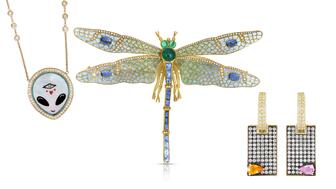
In its annual report, Pinterest noted an increase in searches for brooches, heirloom jewelry, and ‘80s luxury.

Executive Chairman Richard Baker will take over the role as rumors swirl that a bankruptcy filing is imminent for the troubled retailer.

Mohr had just retired in June after more than two decades as Couture’s retailer liaison.

Shekhar Shah of Real Gems Inc. will serve as president of the Indian Diamond & Colorstone Association in 2026.
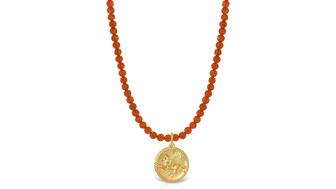
This year’s good luck charm features the mythical horse Pegasus, and is our first Piece of the Week of the new year.
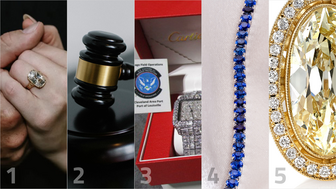
Articles about crime, engagement rings, and a necklace worn in the World Series generated the most interest among readers.




